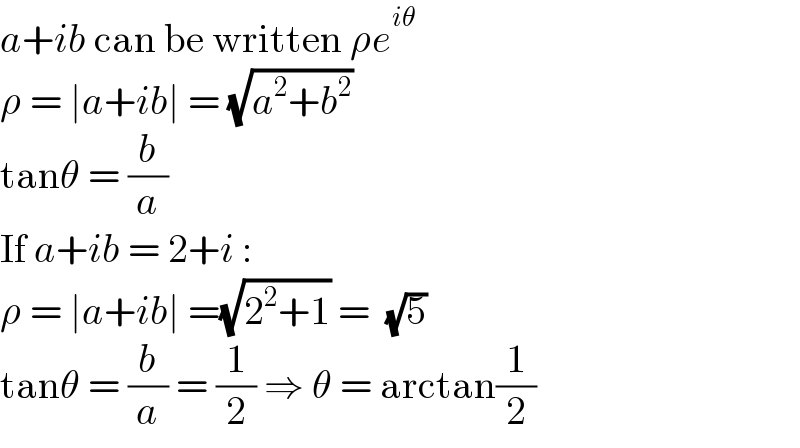
Question and Answers Forum
Question Number 130104 by mohammad17 last updated on 22/Jan/21
![find the key value [Arg(z)]for (2+i)^(1−i)](Q130104.png)
Answered by Olaf last updated on 22/Jan/21
![z = (2+i)^(1−i) Z = lnz = (1−i)ln(2+i) Z = (1−i)ln((√5)e^(iarctan(1/2)) ) Z = (1−i)[(1/2)ln5+iarctan(1/2)] Z = ((1/2)ln5+arctan(1/2))−i((1/2)ln5−arctan(1/2)) z = e^Z = (√5)e^(arctan(1/2)) e^(i(arctan(1/2)−(1/2)ln5)) Argz = arctan(1/2)−(1/2)ln5 (+2kπ) (or Argz = ((π−ln5)/2)−arctan2) (+2kπ)](Q130112.png)
Commented by mohammad17 last updated on 22/Jan/21

Commented by Olaf last updated on 22/Jan/21

Commented by mohammad17 last updated on 22/Jan/21

